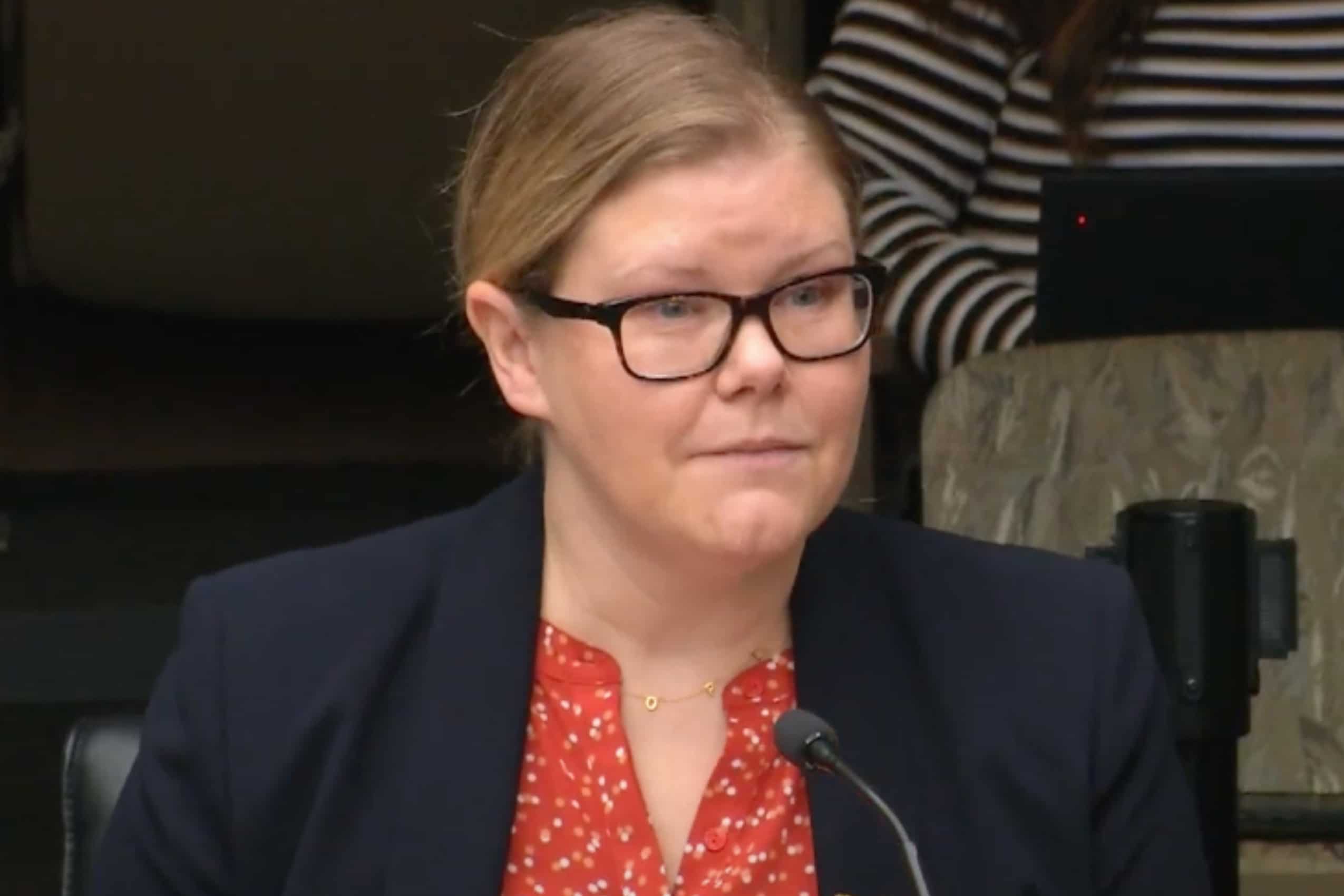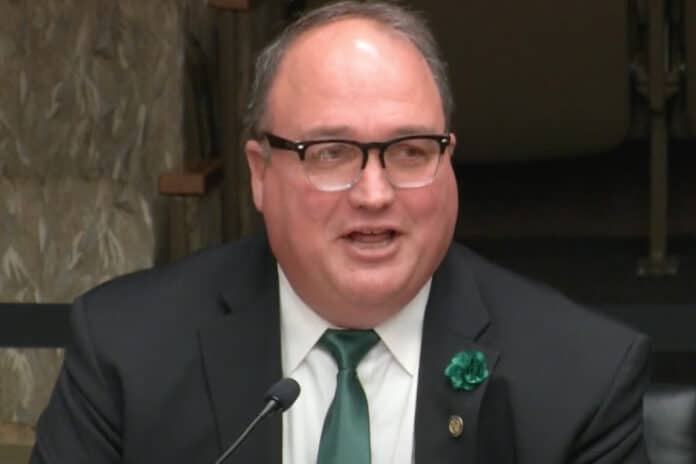A Rosemount lawmaker says he’s carrying a bill for the funeral industry and environmental sustainability enthusiasts that would make it legal to turn a human cadaver into compost.
“Natural organic reduction” is a new technology that many in the mortuary science world are embracing. It’s legal in six states, including Washington, where one Minnesota man dying of cancer last year had to arrange to have his body shipped after his death to undergo the process. The composted remains were then sent back to Minnesota, said Taelor Johnson of Twin Cities-based Mueller Memorial and Interra Green Burial.
“Steve died last September, and he got his wish to be transformed into highly regenerative soil,” said Johnson during her testimony Tuesday on HF2669, which would make it legal for licensed morticians to operate natural organic reduction technology for corpses. “It may seem hard to believe, but Steve was excited at this plan for his disposition because it would help him make meaning out of his own death.”
Rep. John Huot, DFL-Rosemount, who’s sponsoring the legislation, told members of the House Health Finance and Policy Committee during a hearing Tuesday that he’s been surprised by the number of emails he’s received expressing support for the bill.
Other testifiers included Janet McGee, a licensed mortician and funeral educator at the University of Minnesota, who said the next generation of mortuary science students are “excited about the possibility of bringing natural organic reduction (NOR)” technology to Minnesota.

“We’re seeing a greater demand for eco-friendly and personalized burial options,” McGee said.
Industry experts who were on hand to advocate for NOR as a method of disposing of human remains explained how the process works and stressed its environmentally friendly benefits. Others said NOR is a more expensive alternative to already legal “green burials” that are offered in Minnesota and reduces the remains of a human person “to being treated like fertilizer.”
“Human composting is disrespectful to the human body and undermines our respect for the dignity of the human person,” wrote attorney Sam Nelson for the Minnesota Catholic Conference, which is opposing the bill. “(NOR) is also more expensive and less environmentally friendly than green burials, which are already legal in Minnesota.”
During the NOR process, a human corpse is typically placed in a bag or steel box and stored for weeks or months in a large facility while the body is broken down. Remains that are not yet broken down are then mechanically ground to bits. When the composting process is completed, the human remains are mixed in with dirt, “to be scattered as desired” by the wishes of the deceased and their next of kin.
“With the legalization of human composting, we may unknowingly be walking on human remains, eating vegetables grown with human remains, or our children could be playing in dirt mixed with human remains,” Nelson wrote in his testimony on behalf of the Minnesota Catholic Conference, adding that green burials, which involve burying the deceased in a shroud or wooden box that’s placed in the ground, are environmentally friendly and are half the cost of NOR.
Rep. Tina Liebling, DFL-Rochester, said that the other popular alternative, cremation, involves a lot more energy output than natural organic reduction.
The bill was laid over for possible inclusion in an omnibus bill later this session. Its Senate companion has yet to be scheduled for a hearing. No Republicans have signed onto the bill.
Hank Long
Hank Long is a journalism and communications professional whose writing career includes coverage of the Minnesota legislature, city and county governments and the commercial real estate industry. Hank received his undergraduate degree at the University of Minnesota, where he studied journalism, and his law degree at the University of St. Thomas. The Minnesota native lives in the Twin Cities with his wife and four children. His dream is to be around when the Vikings win the Super Bowl.












